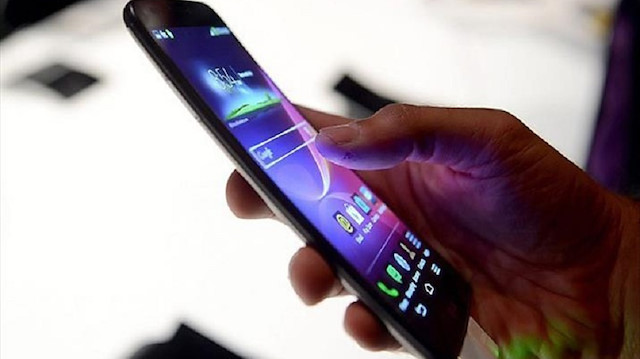
Average cell phone call time in UK rose by almost 50% after announcement of strict measures in March
Cell phones play an important role in maintaining less intensive social relations during the novel coronavirus pandemic.
According to global data provider Statista, there are an estimated 3.5 billion smartphone users in the world as of 2020. The number of smartphone users, which was 1.86 billion in 2015, approximately doubled in five years.
Previously only being able to make calls and send text messages, cell phones gained new diverse features as technology has progressed. Today, they provide access to a wide range of services from digital banking to video calls, education services to online shopping.
Smartphones were extensively used for various purposes during the COVID-19 pandemic. According to the study by a group of researchers from Baylor University in the US, social relations, which were negatively affected during the outbreak due to social isolation, were maintained through smartphones.
The use of technology has also increased with remote working and distance education during the pandemic. Cell phones, which were first introduced to Turkey 27 years ago, have gradually become a part of daily life.
According to data from Statista 2019, Turkey has the 13th highest number of smartphone users in the world. This has reflected in the country's fight against COVID-19, with some 56.2 million people downloading a coronavirus contact-tracing app, known as HES, that was introduced by the Health Ministry to spread awareness about the outbreak and measures against it.
Meanwhile, time spent actively using smartphones has also surged due to quarantine measures. According to Ofcom, Britain's broadcasting watchdog, the average cell phone call time rose from three minutes and 40 seconds to nearly five and a half minutes after the announcement of strict measures in March, an increase of almost 50%.
One-third of users check their phones more than 50 times a day, while 87% of users check their devices within the first hour of waking up -- and a third check within the first five minutes.
*Writing by Gozde Bayar in Ankara
Hello, the comments you share on our site are a valuable resource for other users. Please respect other users and different opinions. Do not use rude, offensive, derogatory, or discriminatory language.
The floor is all yours.








